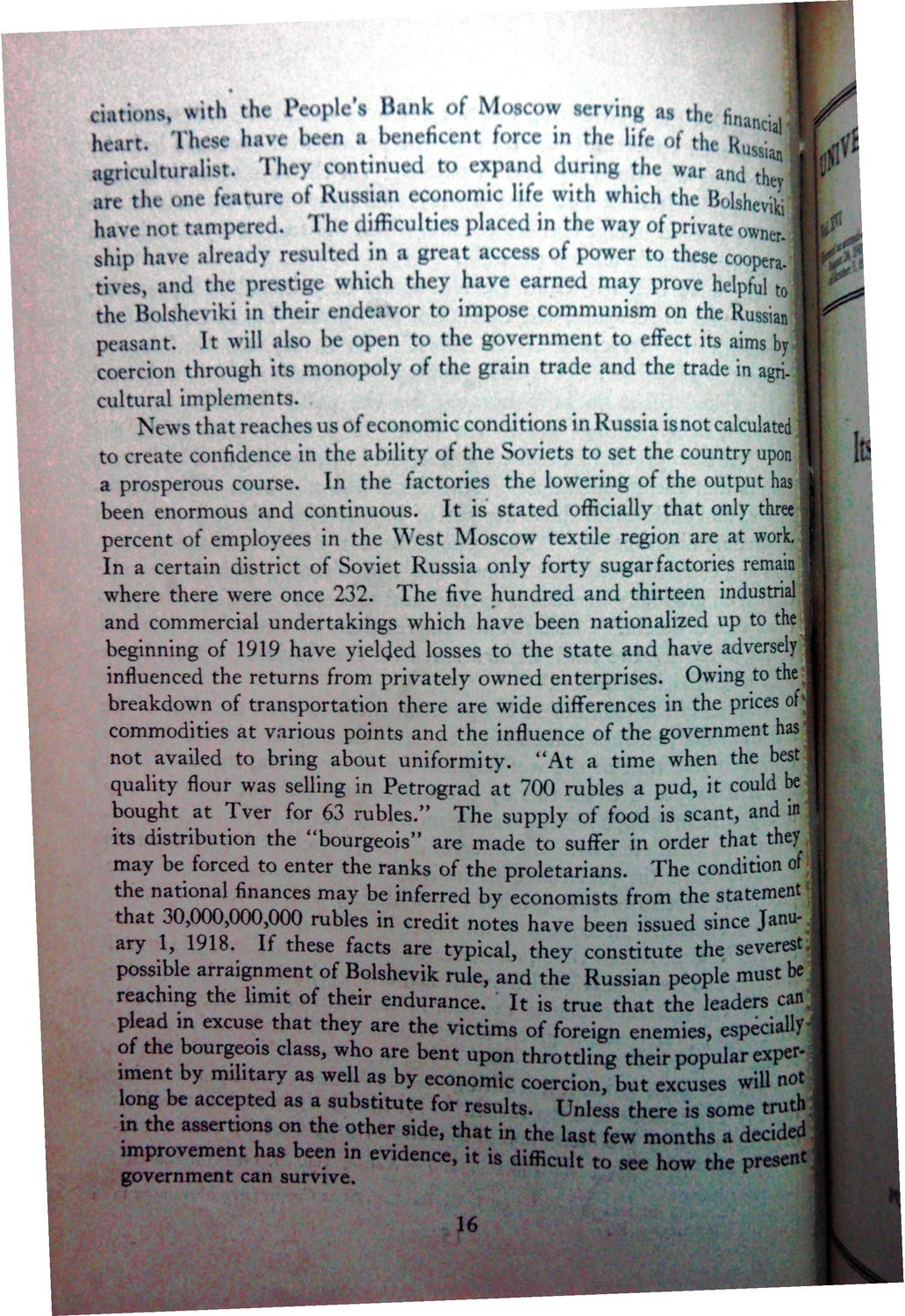| |
| |
Caption: War Publications - WWI Compilation 1923 - Article 22
This is a reduced-resolution page image for fast online browsing.

EXTRACTED TEXT FROM PAGE:
People's Bank of Moscow serving is the fin ciations, wit ancial ,UIVC heart. Tkm ^ ^ * beneficent force in the life of ussiaaj agriculturalist. They continued to expand during the war 1 they arc the one feature of Russian economic life with which the iheviki have not tampered. The difficulties placed in the way of priv shin have already resulted in a great access of power to the hich they have earned may prove tives, a nd t deavor to impose communism on t peasant. It will also he open to the government to effect its aims by] grain trade and the trade in agri- j cultural implements. of f a prosperous course. In the factories the lowering of the output has been enormous and continuous. It is stated officially that only three percent of employees in the West Moscow textile region are at work. In a certain district of Soviet Russia only forty sugarfactories remain where there were once 232. The five hundred and thirteen industrial and commercial undertakings which have been nationalized up to the beginning of 1919 have yielded losses to the state and have adversely influenced the returns from privately owned enterprises. Owing to the breakdown of transportation there are wide differences in the prices of commodities at various points and the influence of the government has not availed to bring about uniformity. "At a time when the best 700 ru ru food its distribution the "bourgeois" are made to suffer in order that they may be forced to enter the ranks of the proletarians. The condition of the national finances may be inferred by economists from the statement that 30,000,000,000 rubles in credit notes have been issued since January 1, 1918. If these facts are typical, they constitute the severest possible arraignment of Bolshevik rule, and the Russian people must be reaching the limit of their enduran true plead in excuse that they are the victims of foreign enemies, especially of the bourgeois class, who are bent upon throttling their popular experiment by military as well as by economic coercion, but excuses will not long be accepted as a substitute for results. Unless there is some truth !° ^ ! ™ i ! ^ T ° " e _ .° e ther ? i d e t h a t i n t h e la ' survive *t few months a decided it is difficult to see how the present h 16
| |